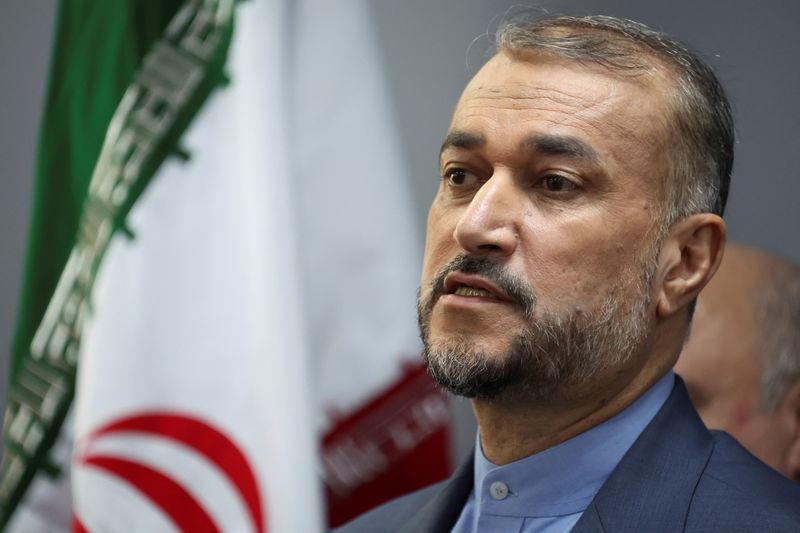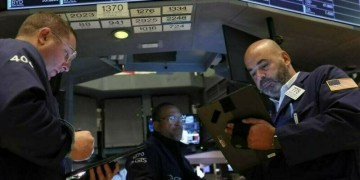
© Reuters. Iranian Foreign Minister Hossein Amirabdollahian speaks during a joint press conference with Lebanon’s caretaker Foreign Minister Abdallah Bou Habib ( not pictured ) in Beirut, Lebanon October 13, 2023. REUTERS/Mohamed Azakir
By Elwely Elwelly and Ahmad Ghaddar
DUBAI/LONDON (Reuters) -OPEC is not planning to hold an extraordinary meeting or take any immediate action after Iran’s foreign minister called on members of the Organisation of Islamic Cooperation (OIC) to impose an oil embargo and other sanctions on Israel, four sources from the producer group told Reuters.
Iranian Foreign Minister Hossein Amirabdollahian on Wednesday called on OIC members to impose an oil embargo and other sanctions on Israel and expel all Israeli ambassadors.
Four sources from the Organization of the Petroleum Exporting Countries (OPEC), which produces a third of the world’s oil and includes several Muslim countries including Iran, said that no immediate action or emergency meetings were planned by the group in light of Iran’s comments.
“We are not a political organisation,” one of the sources said.
On Tuesday, the Gulf Cooperation Council secretary-general when asked whether Arab countries should reduce oil production in retaliation for Israel’s actions in Gaza, said that the GCC was committed to energy security and shouldn’t use oil as a weapon.
“The GCC works as a clear and honest partner as an oil exporter with the international community and we can’t use that as a weapon in any way possible,” Jasem al-Budaiwi said.
In 1973, Arab producers led by Saudi Arabia slapped an oil embargo on Western supporters of Israel in its war with Egypt, targeting Canada, Japan, the Netherlands, Britain and the United States.
Oil prices spiked as a result but over the longer term the crisis led to the development of new oil provinces outside the Middle East like the North Sea and deepwater assets, and encouraged alternative energy.
While Western countries were the main buyers of crude produced by the Arab countries at the time, nowadays Asia is the main buyer of OPEC’s crude.
“The geopolitical environment is different compared to 50 years ago,” another OPEC source said about why an embargo won’t be implemented.
An urgent meeting of the OIC is taking place in the Saudi city of Jeddah to discuss the Israeli-Palestinian conflict, after a blast at a Gaza hospital late on Tuesday killed large numbers of Palestinians.
Amirabdollahian also called for the formation of a team of Islamic lawyers to document potential war crimes committed by Israel in Gaza.
Iran has no diplomatic relations with Israel.
Prior to the hospital blast on Tuesday, health authorities in Gaza said at least 3,000 people had died during Israel’s 11-day bombardment that began after a Hamas Oct. 7 rampage on southern Israeli communities in which 1,300 people were killed and around 200 were taken into Gaza as hostages.
(Reporting Elwely Elwelly and Maha El Dahan in Dubai, Ahmad Ghaddar and Alex Lawler in London; Editing by Alex Richardson, Gareth Jones, Kirsten Donovan)
Source: Investing.com






























